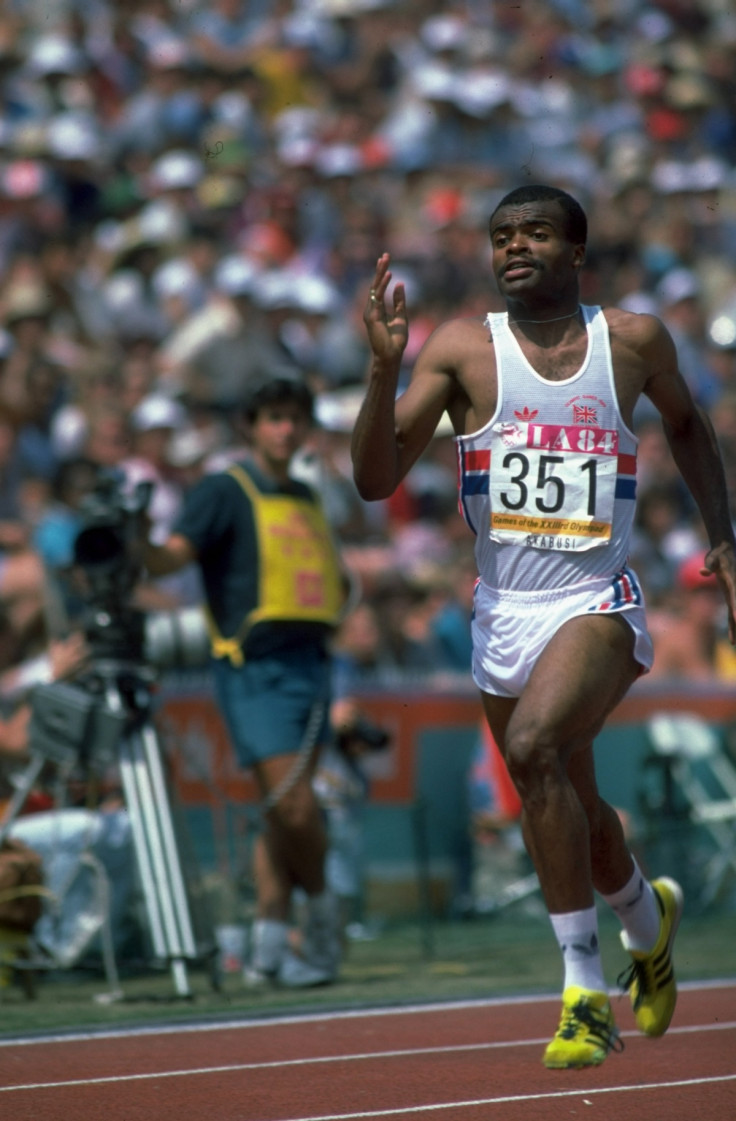England doesn't need its own national anthem – let the UK remain united

All Britons should be proud to be part of a country made up of a range of diverse cultures, unified under the same flag and by the same anthem. You may be English, Scottish, Indian or Nigerian – but you can still be British.
It might be a 'generational thing' but my strong sense of British identity developed when growing up in foster care in the late baby-boomer years of the late 1960s. Racism was overt and, as a minority, the realisation of being different from the masses was threatening. As a group of diverse children in the children's home, we were taught deference and respect for authority and tradition, leading me to develop a strong national allegiance to Queen and country.
With 65 million people in the UK and counting, a key to our continued success will be our ability to remain united, while celebrating our similarities rather than our differences. The calls for England to have its own national anthem concerns me. It could be something that leads to the potential dissolution of the union. Extreme? Perhaps. But it is possible to argue that this is the thin edge of the wedge.
What starts with the introduction of an English national anthem could end with an insurgence of English nationalism
The removal of any unifying forces could leave the way open for destructive nationalistic tendencies. What starts with the introduction of an English national anthem could end with an insurgence of English nationalism, threatening the union itself. A Pandora's box could be opened once we focus on our differences and not our similarities.
Due to its size (England has a population of 53 million), heightened English nationalism would not only pose a danger to Scotland, Wales and Northern Ireland, but it could also threaten the unity of England itself. After all, once England has differentiated itself from the rest of the UK, will it begin to differentiate among its own sub-groups with potentially disastrous consequences? Cornwall, Yorkshire and Northumberland, to name but a few, all have strong regional claims, and the possibility that so many years of unity and inclusivity could quickly unravel is too great a risk to take.
One of the beautiful things about living in the UK is the ability to travel from one end of the country, through various regions, to the other with no threat to life, limb or liberty. However, this will be under threat if nationalist tendencies lead to a growth of regional sensibilities.
At this point, it is certainly worth remembering Mike Tyson's infamous words, "Strategy, strategy – everyone has a strategy until they get a smack in the mouth." We could say the same for unity; we will remain united, until we get a smack in the mouth.
It is fair to argue that this argument might be straying towards the extreme and that there is little actual danger in promoting an alternative song for England. However, the national anthem is more than just a song. It is a tool for national engagement and motivation, factors that are crucial to the success of any country.

The reason for this is psychological. As human beings, we are tribal, naturally clustering in groups. It all stems from our need for survival and belonging, as Maslow identified in his hierarchy of needs. For me, the national anthem is an emblem of our enduring success as a collective group.
We know that to be part of something bigger than ourselves helps promote our survival. That feeling of belonging drives our performance. In my experience of coaching businesses, the ones that succeed are the ones that develop a strong culture, a unifying dream and an organising principle for workers to share.
A state needs to ensure that all citizens develop a sense of belonging, and one way of doing this is to provide unifying forces and principles that all citizens share in common, such as flags, anthems and systems of government.
The potential success that comes from a true feeling of belonging is immense. When I was competing, the proudest moments were those when I represented Great Britain in the World Championships and the Olympics, and nothing can replace the feeling of competing for a whole community.
However, to argue against self, I also represented England at the Commonwealth Games, where 'Land of Hope and Glory' is used as the English anthem. I was equally proud to compete under the English banner and it was refreshing to see the flag of St George fly alongside the insignia of Scotland, Ireland and Wales – so are my fears misplaced?
Perhaps children today with different experiences, who have grown up in a more global, individualistic world, would not feel pressured to choose between being British or English, and perhaps the perceived growth of nationalism would be diminished in the hands of more globally-minded individuals. Maybe to them, an English national anthem would be 'just a song'.
However, the prospect still reminds me of Yeats' famous words: 'Things fall apart; the centre cannot hold'. Our strength and survival rely on remaining a United Kingdom. We are better as a union, and England, as the biggest slice of the pie, has a responsibility to lead by example. If you disintegrate into conflict, you disintegrate into chaos.
Kriss Akabusi MBE is an Olympian, and retired British track and field athlete. Now CEO of The Akabusi Company, Kriss is a corporate speaker, executive coach, and works with businesses to support them through transitional change. Kriss is also Chairman of The Akabusi Charitable Trust, which works to create employment opportunities for young NEETs in the UK. Follow Kriss on Twitter @KrissAkabusi
© Copyright IBTimes 2025. All rights reserved.






















